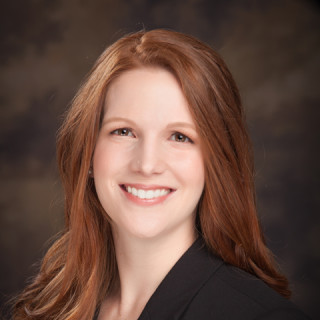 How many of you have heard one of these during a patient encounter?
How many of you have heard one of these during a patient encounter?
“You look too young to be the doctor.”
“When I did my own research, I found something different.”
“My family member/friend/acquaintance had this same problem and their doctor did X.”
A big part of our job is transferring our knowledge in a digestible manner to help patients understand what we think is happening and why we are recommending a specific course of action — and to ensure we are taking their preferences into account. I generally look forward to fielding thoughtful questions about the assessment and plan, as I find this useful in checking my thinking and building rapport and trust.
Not all challenges to our expertise, however, come in the form of a collegial discussion. It can be very difficult to manage a relationship with a patient who seems to have dismissed you as a credible voice, regardless of the reason (though you may find this happens more frequently if you look young, are female, are a minority, or are a combination of these). The more antagonistic encounters can be particularly distressing, as most of us genuinely want to help our patients, and some encounters seem to prevent us from fulfilling that basic premise of the doctor-patient relationship.
The anti-vaccine movement may be the most visible example of this in health care, but this certainly is not a phenomenon unique to the medical field. A 2014 piece by Tom Nichols in "The Federalist" explores the increasingly prevalent cultural tendency to dismiss the very concept of expertise. As Nichols observes, in a world where a vast repository of information (of varying credibility) is accessible to anyone with an internet connection, it is increasingly common to encounter the attitude that “everyone’s opinion about anything is as good as anyone else’s.” In other words, intensive study of and experience with a particular subject area no longer makes you more qualified than a layperson to discuss your field of study.
This observation also begs a mention of the Dunning-Kruger effect — the phenomenon in which individuals are ignorant of their own ignorance — as this often goes hand in hand with the idea that expertise is a myth.
So, it is clear that we are likely to encounter these attitudes as part of our work. But how do you approach your job — which is predicated on the development and application of expertise — if the person with whom you are interacting 1) does not believe that you have expertise, or 2) believes that your expertise does not matter?
Here are some strategies you can use to try to make the best of a challenging encounter:
1. Listen. It always helps to gain a better understanding of why a patient feels the way they do or is hesitant to accept your recommendations. You would likely take a different approach to a patient who has trouble trusting the medical system because of a prior bad experience than you would a patient who feels they should try another treatment based on their internet research.
As a related aside, keep in mind that people can be rational — make decisions logically — even if their logic and conclusions do not mirror your own. (i.e. refusing vaccinations despite being presented with scientific evidence does not necessarily make someone irrational, it just means they are prioritizing different elements in their own analysis of the situation.) Gaining insight into motivations can help you follow their train of thought, and then address the points that really matter to the patient.
2. Remember: you are the expert. Students and residents, who are often keenly aware of their own gaps and may not even feel like “experts” may have the most trouble with this, though it can still be difficult regardless of where you are in your career. At the end of the day, your intensive study and experience in your field does make a difference. When I encounter a personal challenge, I like to remind patients that I am backed by the expertise of my team, as well as all of the experts who have participated in my training. I also make sure that I try to take time answer all of their questions thoroughly so they have a chance to see how I applied my knowledge to their problems.
3. Acknowledge your limitations. Even experts don’t have all the answers! It’s okay to acknowledge gaps in your understanding, and it’s even better to offer to find an answer. You will further damage your own credibility if you try to hedge on answers you don’t have. Keep in mind that your study and training have positioned you well to make an educated judgment with incomplete information (see #2 above). It can also be beneficial to talk the patient through any ambiguity and how you thought about it, while still making them feel included and heard in the process. And, as always, keep working on building your knowledge base!
4. Ask for help if you need it. Sometimes, the same message delivered in a different format, or from a different person, may hit home more effectively. Use your team and your colleagues throughout the process to give the patient the opportunity to hear your message in a variety of ways.
5. Understand the boundaries of the interaction. Not all of these encounters will have a happy ending. Sometimes, you’re going to have to acknowledge the patient’s decision — even if you disagree — so you can maintain the relationship. Do encourage them to come back and see you, as progress in some cases may only be possible with a long-term ongoing conversation.
It is also important to set your own boundaries in these interactions. If the challenge or disagreement gets personal, you may need a supervisor to intervene, or in the most difficult cases, you may need to carefully end the relationship with a patient. It should always be okay to speak up if you are uncomfortable, and it is important for your job to support you in this.
Amy Blake is an internal medicine resident and a 2018-2019 Doximity Author. The views expressed herein are solely those of the author and do not necessarily represent the views of any organization with which she is or has been affiliated.






